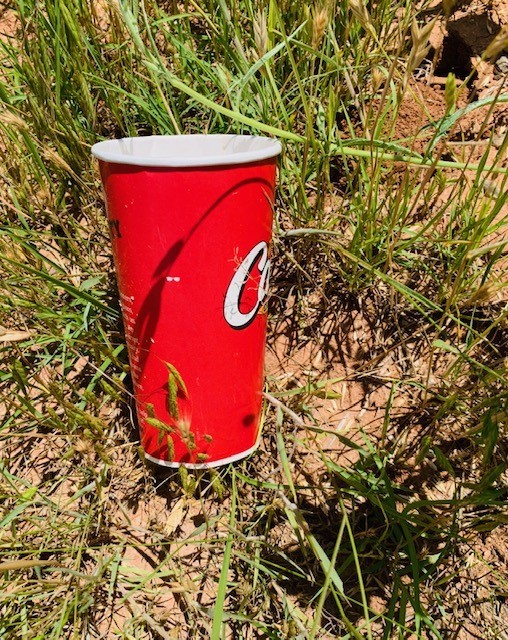News Release

NPS Photo
|
Subscribe
|
Contact: Tim Cruze, 806-857-6680
Fritch, Texas – It’s summertime and many visitors are enjoying the many recreational opportunities at Lake Meredith National Recreation Area. Are you reducing your impact while exploring our national recreation area? Please help us by practicing Leave No Trace Principles.
Leave No Trace is a national program which promotes the protection of our nation’s wildlands through education, research, and partnerships. Leave No Trace builds awareness, appreciation, and respect for our public recreation areas like Lake Meredith.
Four federal land management agencies: The National Park Service, U. S. Forest Service, Bureau of Land Management, and U. S. Fish and Wildlife Service all promote the Leave No Trace message. Working with outdoor retailers, educators, and user groups these federal agencies help make Leave No Trace the common language for all outdoor enthusiasts.
Packing out your trash is a vital Leave No Trace principle. Lake Meredith continues to see increased visitation, especially on the weekends. Several campgrounds are extremely crowded with visitors wanting to get as close to the lake as possible. The amount of trash, such as plastic bottles, glass, and paper products, coolers, dirty diapers, tents, torn awnings, and outdoor grills are more often than not, left behind after the camper leaves instead of placing the trash in the proper trash containers.
The park is asking you to please practice Leave No Trace when you visit Lake Meredith. Each of us play a vital role in protecting our National Parks, Recreation Areas and National Monuments. As we spend time outdoors in the natural world, and wilderness areas, it is important to be conscious of the effects our actions may have on plants, animals, other people, and even entire ecosystems. We need your help to keep Lake Meredith beautiful.
Please practice the following Leave No Trace principles while at
Lake Meredith National Recreation Area
· Plan Ahead and Prepare
o Know the regulations and special concerns for the area you will visit.
o Prepare for extreme weather, hazards, and emergencies.
o Schedule your trip to avoid times of high use.
o Repackage food to minimize waste.
· Travel and Camp on Durable Surfaces
o Durable surfaces included maintained campgrounds and designated camp sites.
o Protect riparian areas by camping at least 200 feet from the lake.
o Good campsites are found, not made. Altering a site is not necessary.
o Using existing campsites.
o Keep campsite small.
· Dispose of Waste Properly
o Pack it in, pack it out. Inspect your campsite, food preparations areas, and rest areas for trash or spilled foods. Pack out all trash and food.
o Utilize toilet facilities whenever possible.
· Leave What You Find
o Preserve the past examine, photograph, but do not touch cultural or historic structures and artifacts.
o Leave rocks, plants, and other natural objects as you find them.
o Avoid introducing or transporting non-native species.
o Do not build structures, furniture, or dig trenches.
· Minimize Campfire Impacts
o Where fires are permitted, use established fire rings. It is against park policy to pick up rocks or stones to make your own fire ring.
o Keep fires small and use the grills provided if possible
o Fires are prohibited in backcountry areas.
o In developed areas, fires are prohibited except in designated fire grills, portable stoves, or grills. Keep fire out of contact with the ground.
o Burn all wood and coals to ash, put out campfires completely, then scatter cool ashes.
· Respect Wildlife
o Observe wildlife from a distance. Do not follow or approach them.
o Never feed animals. Feeding wildlife damages their health, alters natural behaviors, and exposes them to predators and other dangers.
o Protect wildlife and your food by storing rations and trash securely.
o Control pets always or leave them at home.
· Be Considerate of Other Visitors
o Respect other visitors and protect the quality of their experience.
o Be courteous. Yield to other users on the trail.
o Step to the downhill side of the trail when encountering pack stock.
o Take breaks and camp away from trails and other visitors.
o Let nature’s sounds prevail. Avoid loud voices and noises.
These principles were established by the Leave No trace Center for Outdoor Ethics, and supported by the U. S. Forest Service, National Park Service, and the Bureau of Land
Management in the mid-1980’s. The principles are based on scientific research in the fields of recreation ecology and human dimensions of natural resources.
Thank you for doing your part to protect our natural world.
Last updated: June 10, 2021
